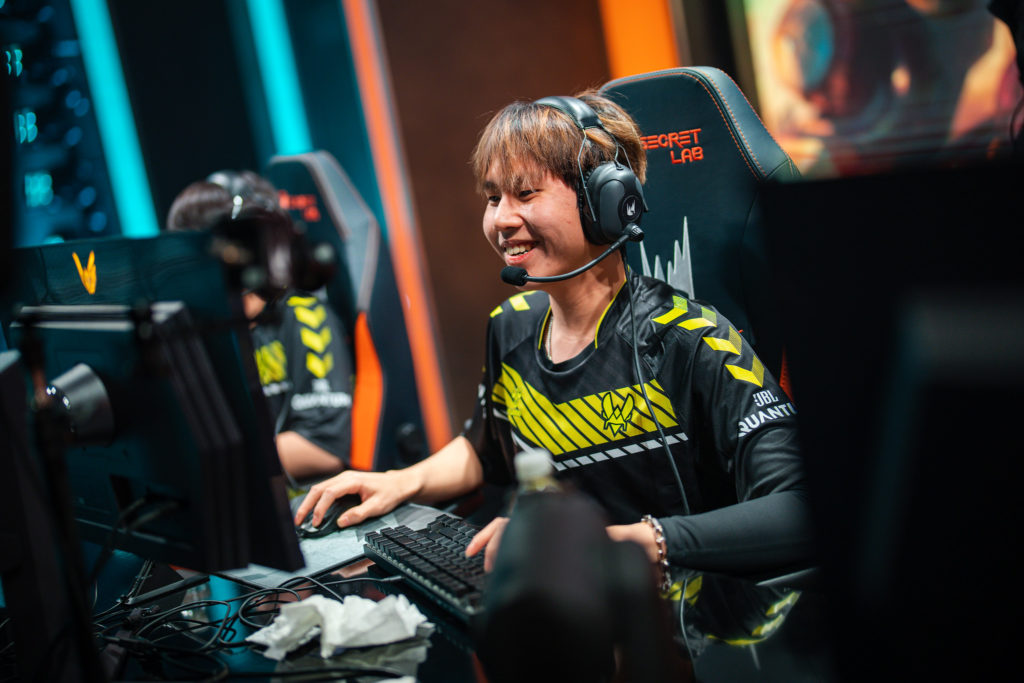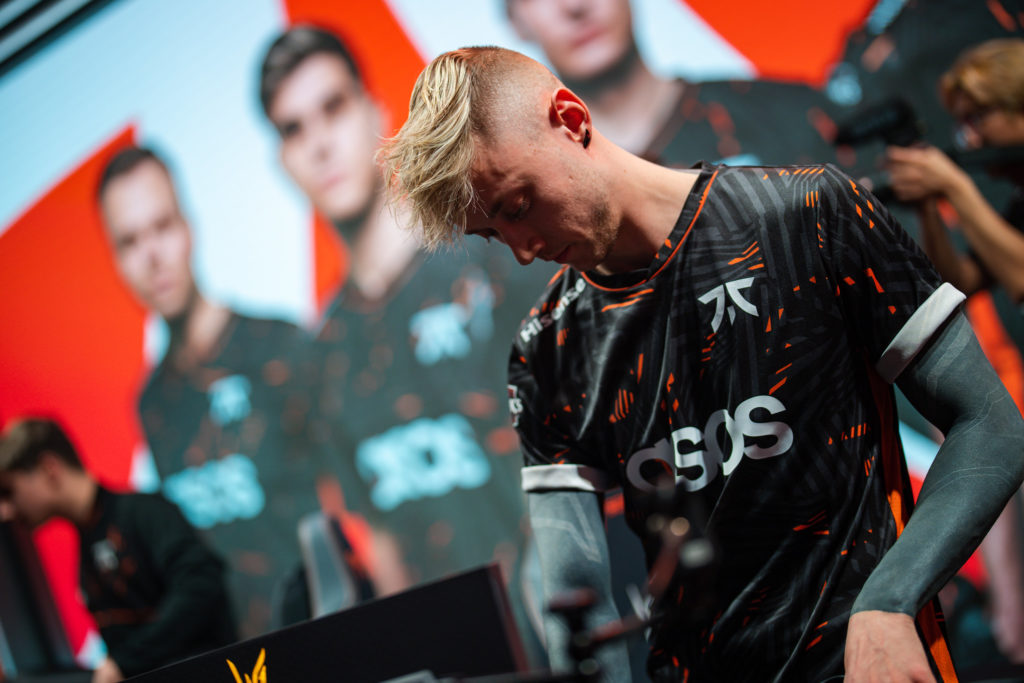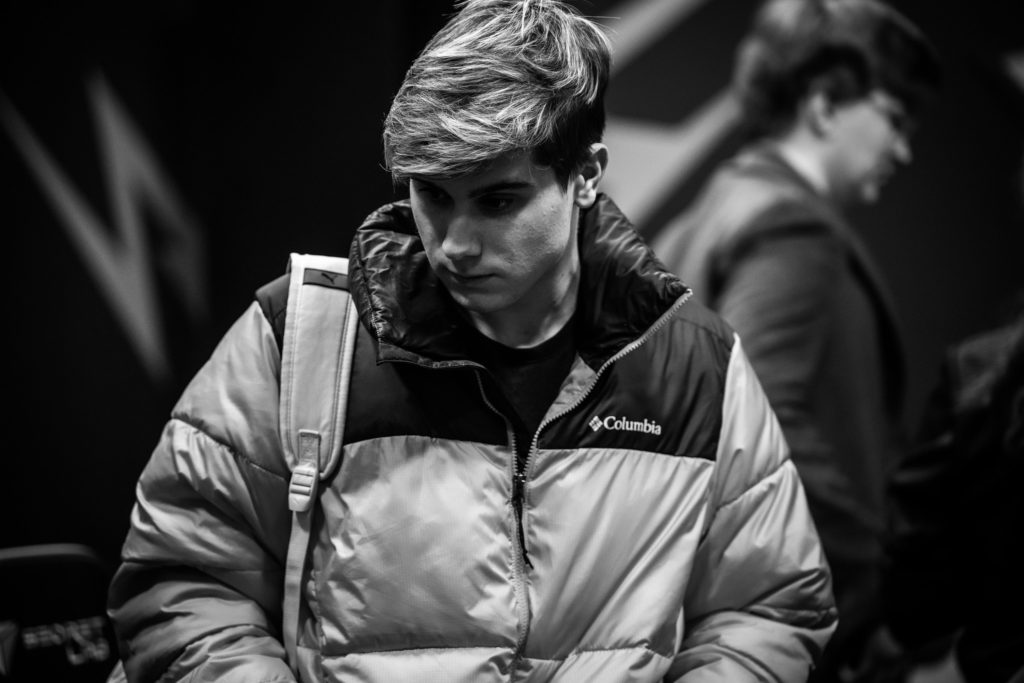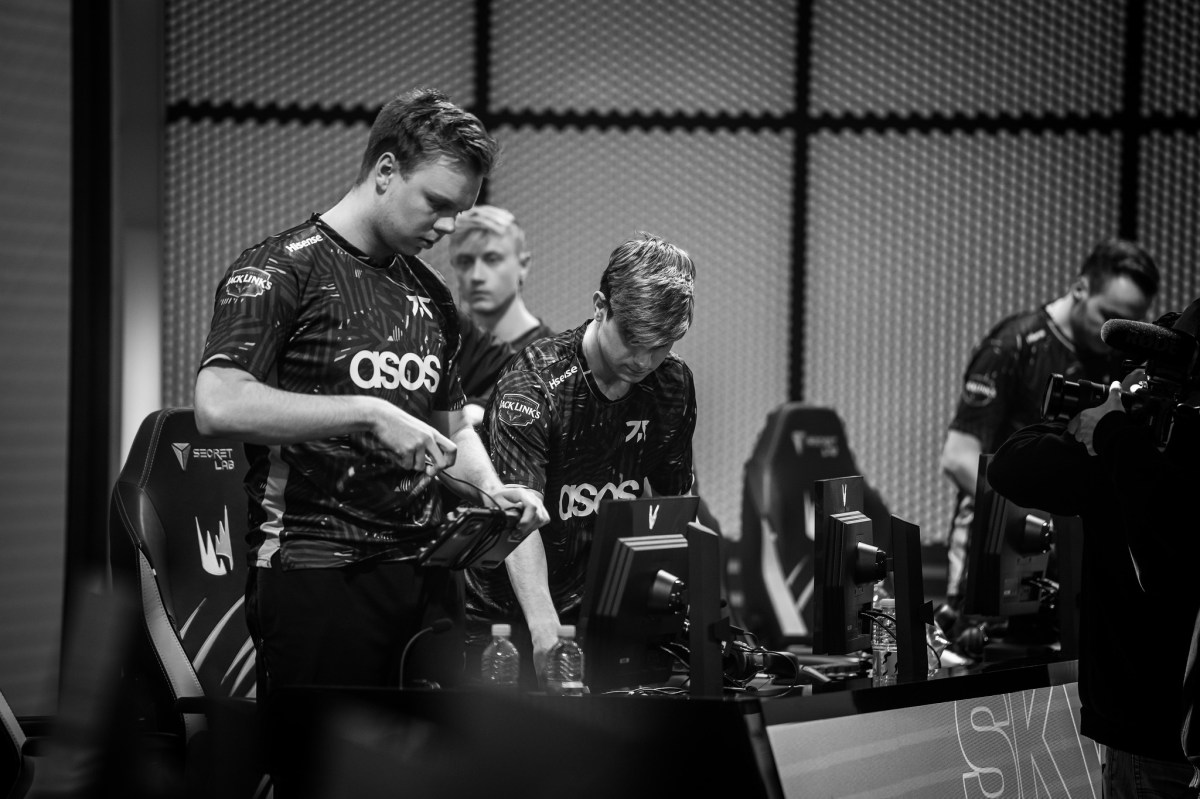Fnatic probably never expected to get a ninth-place finish before the start of the 2023 season—nor did anyone else.
The 2023 League of Legends competitive season kicked off in the worst way for the London-based organization. Despite having great individual players on the roster, the team failed to qualify for the second phase of the LEC Winter Split, showcasing a worrying level of team play. They struggled to fix issues in a number of areas, leading to a vicious cycle that brought the team to the worst placement in the org’s history.
Here’s why Fnatic finished at the bottom of the standings in the 2023 LEC Winter Split.
Is it a lack of a clear team identity?
Successful teams take advantage of the players’ individual characteristics or playstyle. Finding the right formula to allow players to shine is crucial but also incredibly difficult to pull off consistently.
To make a clear example, the current iteration of Team Vitality has five strong players who can mesh well together. The team’s identity so far is quite apparent: jungler Bo plays around mid and top, while ADC Neon stays on weakside duty and scales slowly into the later stages of the game. Support Kaiser can be the jack-of-all-trades who either stabilizes the bot lane by absorbing pressure or acts as the roaming support that helps Bo make plays around the map.

The current meta doesn’t allow Kaiser to do the latter due to the rise of ranged support champions that want to play the lane rather than roam. That said, Vitality have found their own way to work around this and still have mid laner Perkz and Bo act as the main core of the team. In this case, it was top laner Photon who stepped up and took the role of a secondary carry.
Fnatic, on the other hand, seemed to struggle to adapt to the meta of ranged supports and find a suitable team identity to succeed. Last year, Fnatic made it to the World Championship by relying on ADC Upset and having him be the core of the team. He served as a player the team could play around and give resources to, while being the damage dealer during skirmishes and fights. Rekkles, on other hand, prefers to scale safely into the later stages of the game, without having to rely too much on the team to help him get to that stage.
This doesn’t mean Rekkles is the problem here, just that his playstyle doesn’t fit with the old identity of the team—and Fnatic were unable to find a new one.
Or were they unable to adjust to the current meta?
Fnatic’s results in the Winter Split are not just because of one element or player performing badly. It’s a byproduct of multiple factors that all negatively impacted the team.
A portion of the results can be attributed to how the current professional meta didn’t suit Fnatic’s playstyle. All of their games were played on the same patch, and throughout the nine games, we saw the same champions being picked by all teams over and over again. When it’s impossible to find innovative strategies or champions that can shake up the meta, teams usually try to stick as much as possible to the current power picks. Fnatic’s drafts and the champions played, however, weren’t the most optimal.

For example, Rekkles never played Lucian or Caitlyn during the split. These two were never considered pocket picks like Sivir or Tristana, but the fact he never picked them in a meta where both are S-tier champions raises questions. If you have this handicap, there are only two things you can do: either let your opponents have this power pick or ban both champions.
Fnatic banned Lucian and Caitlyn six and four times, respectively, across nine games, according to Games of Legends, proving this was a constraint the team had. The banning of these two champions opened the door for their opponents to draft other potential power picks.
Additionally, the bot lane itself was mismatching. On one hand, you have Rekkles who wants to farm safely, scale into the late stages of the game, and fight with the right item spikes. On the other hand, you have Rhuckz, who’s performed better on engage-melee supports. In a version of the game where you’re mostly looking to play with aggressive ADCs and ranged supports, this bot lane duo will inevitably hit a wall.
Double weakside is never a good idea
Even if Fnatic are unable to play Lucian and Caitlyn, two champions you want to play around, the team can still be successful if there are other ways to apply map pressure. It won’t be optimal but could still work if all other players, namely mid and top, effectively use the resources they are given. This is where everything falls apart: Fnatic doesn’t have those players.
While jungler Razork and mid laner Humanoid have shown in the past they can use resources to carry games, Wunder has been a weakside player in recent years. Out of the nine games played this split, the Danish top laner played at least six games on tank duty (three on Gragas, two as K’Sante, and one on Gnar, according to Games of Legends). Even if resources are invested in him, the value Fnatic get in return would be much lower.
Razork, on the other hand, is handicapped by the jungle meta. The strong jungle picks currently are not champions you want to funnel resources into. As a consequence, the only player you can technically play around is Humanoid. But that means he would have to be the sole carry every game until Rekkles scales into the late game.

Other teams must have caught on to that strategy. They seem to be aware that as long as Humanoid is neutralized, Fnatic would lack someone to play around. This is what happened in the series between Fnatic and MAD: Elyoya and Nisqy won the two-vs-two in the early game, and then all Razork and Humanoid could do was force desperate plays with the hopes of recovering some of the deficit. Needless to say, it backfired heavily, bringing Fnatic even more behind than they already were.
These players are not inherently bad, but it’s just that the team didn’t have enough lanes to play around and give resources to. While players can learn how to play in a carry-oriented style, it takes time to adapt. Fnatic, however, didn’t have the luxury of time since the Winter Split only lasted three weeks.
Is there a way out for Fnatic and its players?
It’s obvious something big is going wrong inside Fnatic and it might be something unrelated to the game itself. Regardless, the team and the organization’s main focus will be on trying to find a solution to the problems that are plaguing the roster.
Fnatic will now have time to reflect on that before the 2023 LEC Spring Split starts. Even with hopes that there could be a meta shift that will be more suited to the lineup, there’s a chanc we might see some roster moves.
Upset is still sitting on the bench as a substitute player, so Fnatic could elect to bring him back as the starting ADC. If this ends up being the move, either Rhuckz or Rekkles will have to go. There is a chance Rekkles moves to the support role since he already considered it during the offseason, so there are a couple of options the organization can consider going into the LEC Spring Split.
The other thing the team needs to work on is having one additional laner (aside from Humanoid) that can be a carry if given the resources. By doing so, Fnatic can funnel the gold to more players, making their drafts and playstyle more diverse and less predictable. It’s a difficult thing to do in such a short amount of time, but fixing this will significantly increase Fnatic’s potential.
Whoever that player may be, though, someone will have to adapt and evolve.


